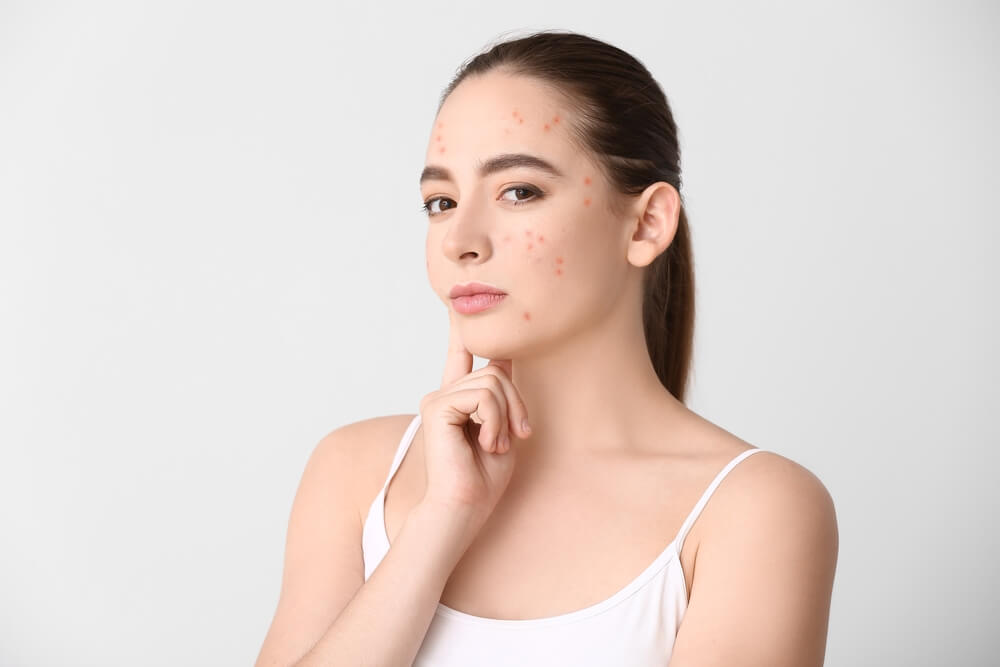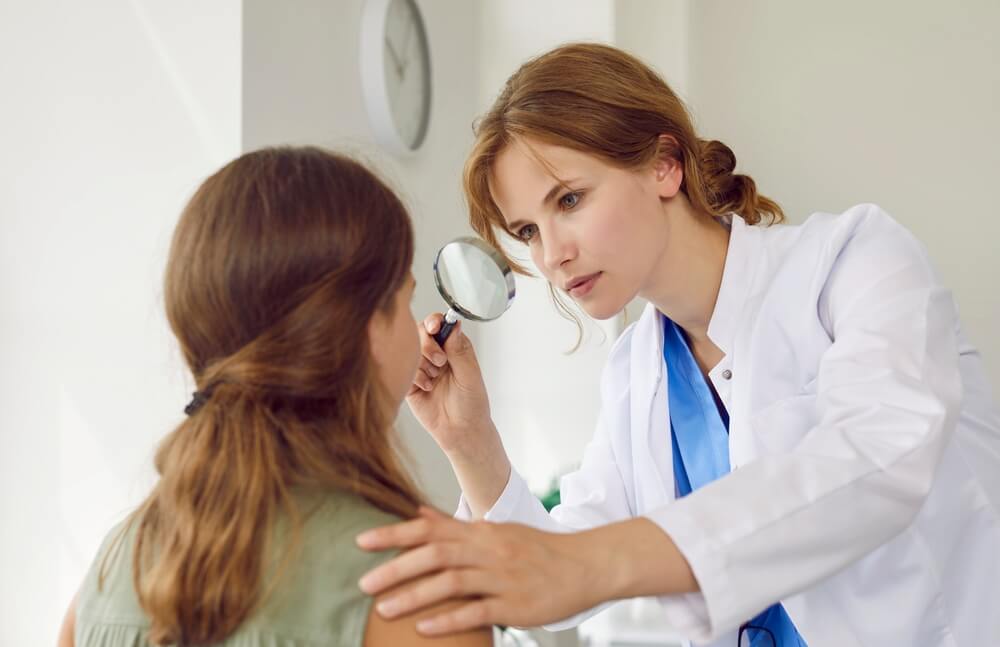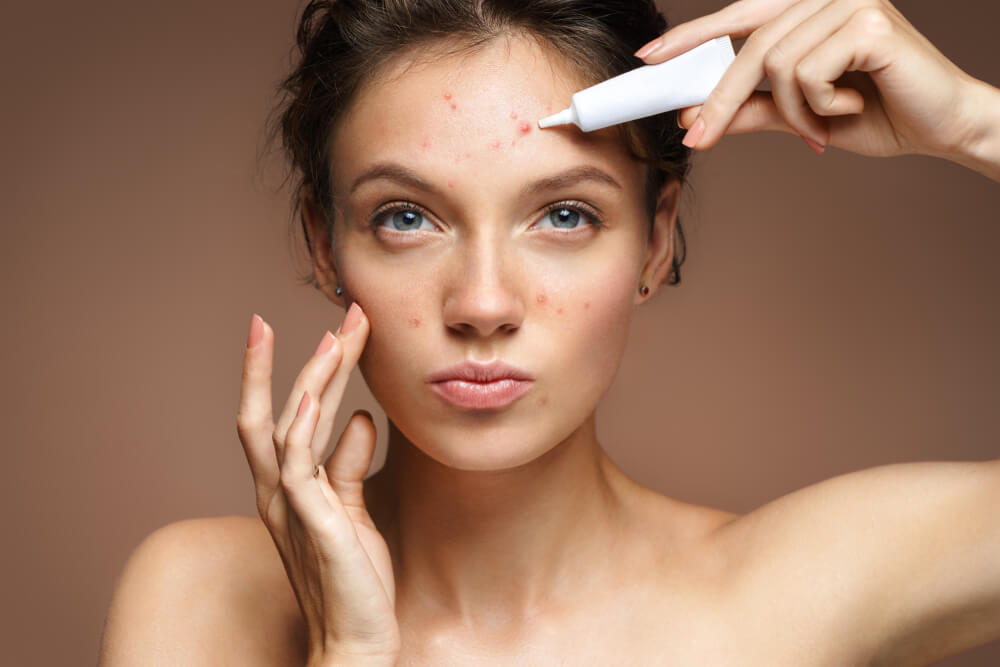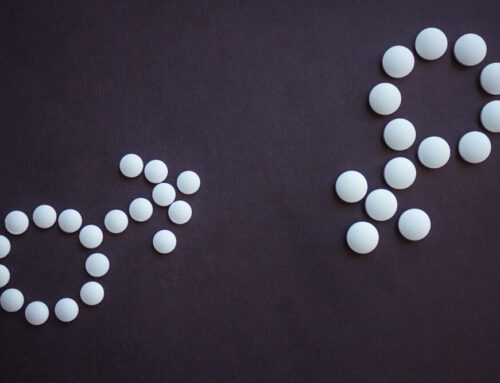Polycystic Ovary Syndrome (PCOS) is a hormonal disorder that affects 1 in 10 women of reproductive age. It is a complex condition that can manifest in various symptoms, including irregular menstrual cycles, weight gain, infertility, and acne. While acne is not a defining feature of PCOS, it is a common symptom that can be particularly difficult to manage. Women experiencing PCOS symptoms should seek professional gynecological care in Margate, Florida.
In this article, we will explore the connection between acne and PCOS, how to diagnose PCOS, and what steps can be taken to treat and manage polycystic ovary syndrome acne.
What Is PCOS?
PCOS is a hormonal disorder that affects the ovaries, which produce eggs and hormones like estrogen, progesterone, and testosterone. Women with PCOS have a hormonal imbalance that leads to the production of too much androgen, a male hormone. This excess androgen can cause a range of symptoms, including acne, facial hair growth, and irregular periods. While the precise cause of PCOS is unknown, it is believed to be linked to genetics and insulin resistance.
Does PCOS Cause Acne?

Yes, PCOS can cause acne. The excess androgen produced by the ovaries in women with PCOS can cause the sebaceous glands in the skin to produce more oil, leading to clogged pores and acne. In addition, the hormonal fluctuations that come with irregular periods can also contribute to PCOS acne.
Women with PCOS are more likely to have acne that is severe, persistent, and resistant to treatment compared to those without PCOS.
Other Problems Linked With PCOS
In addition to PCOS acne, this disorder can cause a range of other symptoms, including:
- Irregular menstrual cycles or no periods
- Infertility or difficulty getting pregnant
- Weight gain and difficulty losing weight
- Excess facial and body hair growth
- Thinning hair on the scalp
- Insulin resistance and an increased risk of developing type 2 diabetes
- Sleep apnea and other sleep disorders
The Process of PCOS Diagnosis
Diagnosing PCOS can be challenging because there is no single test to diagnose it. Your doctor will probably perform a physical exam and ask about your symptoms, medical history, and family history. They may also order blood tests to establish current hormone levels and rule out other conditions. It may also be necessary to do an ultrasound to check for cysts on the ovaries.
Treating Polycystic Ovary Syndrome Acne
Treating PCOS pimples can be challenging because it requires addressing the hormonal imbalance that is causing the pimples in the first place. Topical PCOS acne treatments like benzoyl peroxide and salicylic acid can help unclog pores and reduce inflammation, but they may not be effective. Oral medications like antibiotics and hormonal contraceptives can be effective in reducing PCOS pimples, but they come with potential side effects and may not be suitable for all women.
For more severe or persistent acne, isotretinoin (Accutane) may be prescribed as the best PCOS acne treatment. However, this medication has significant potential side effects, including congenital disabilities, if taken during pregnancy and requires close monitoring by a healthcare provider.
Managing Acne and PCOS
While treating the underlying hormonal imbalance is the most effective way to manage acne caused by PCOS, there are some things you can do at home to help manage your acne:
- Cleanse your skin gently with a mild cleanser twice a day
- Avoid picking or squeezing pimples, which can cause scarring and make acne worse
- Use non-comedogenic makeup and skincare products
- Use oil-free and non-comedogenic sunscreens
- Avoid touching your face throughout the day
- Manage stress through techniques like yoga, meditation, or deep breathing
How Long Do PCOS Pimples Last?
The duration of PCOS pimples can vary from person to person, and there is no set timeline for how long it may last. In some cases, PCOS acne may be a persistent issue that lasts for several years, while in other cases, it may resolve on its own over time.
Factors such as the severity of the acne, the individual’s response to treatment, and the management of the underlying hormonal imbalance can all play a role in determining how long PCOS acne lasts. However, with proper treatment and management of PCOS, it is possible to effectively deal with acne and other symptoms associated with this condition. Individuals with PCOS need to work with their healthcare provider to develop a treatment plan that addresses their unique needs and goals for managing their symptoms.
Do Diet and Physical Activity Matter?
While there is no specific diet that can cure PCOS or acne, some dietary changes may help manage symptoms.
Research has shown that women with PCOS are more likely to have insulin resistance, which can lead to elevated blood sugar levels and an increased risk of developing type 2 diabetes. Following a healthy diet that is low in processed foods and high in whole grains, fruits, and vegetables can help to manage insulin resistance and reduce the risk of developing diabetes. Additionally, some studies have shown that a low-glycemic-index diet, which emphasizes foods that are less likely to cause a rapid spike in blood sugar levels, may be helpful in managing PCOS acne.
In addition to dietary changes, regular exercise can also be helpful in managing PCOS symptoms. Exercise can help to improve insulin sensitivity, promote weight loss, and reduce stress, all of which can help to reduce acne and other PCOS symptoms.
Treating PCOS Itself

While treating polycystic ovary syndrome acne can be challenging, treating the underlying hormonal imbalance is essential for managing PCOS as a whole. Lifestyle changes like maintaining a healthy diet and exercise routine, managing stress, and getting enough sleep can all be helpful in managing PCOS symptoms. Additionally, medications like hormonal contraceptives, metformin (a medication used to manage insulin resistance), and anti-androgen medications can be effective in restoring hormonal imbalances.
In some cases, surgery may be necessary to manage PCOS. For example, ovarian drilling, a minimally invasive surgical procedure that uses heat or a laser to destroy a portion of the ovary, can be helpful in managing hormone levels and promoting ovulation.
Schedule Your Appointment Today
PCOS is a complex hormonal disorder that can cause a range of symptoms, including acne. While managing acne caused by PCOS can be challenging, it is important to address the underlying hormonal imbalance through lifestyle changes and, if necessary, medications.
If you suspect you may have PCOS, it is essential to talk to your healthcare provider to receive an accurate diagnosis and develop a comprehensive treatment plan. With the right treatment, women with PCOS can manage their symptoms and live healthy, fulfilling lives.
That said, you can always count on the compassion and expertise at Fern F. Taisenchoy-Bent, MD, LLC. Give us a call and schedule your checkup now!





